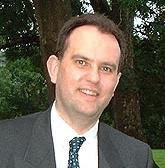The most controversial idea is to place human DNA within the female gamete of an animal, such as a cow, having removed the animal’s DNA, and create human-animal hybrid embryos for the sake of stem-cell experimentation. The reason this is considered necessary is to increase the number of embryos available for research, as human embryos are apparently in short supply for stem cell research. It is argued that it is important for medical research to find cures for various genetic diseases, although such claims ignore the fact that the ends cannot be used to justify the means. It totally ignores the evidence that human stem cells can be just as effective in research of this nature, and considers the ethical disgust felt by many as simply a ‘yuk’ factor that will be overcome when the process is underway. Leading science institutions such as the Royal Society, and well-known secularists such as Lord Robert Winston, Polly Toynbee and David Aaronovitch support the measures.
Those opposed include the Catholic leader in Scotland, Cardinal Keith O’Brien, who said the Bill was a ‘monstrous attack on human rights, human dignity and human life,’[5] and the Anglican Bishop of Durham, Tom Wright who commented that ‘This secular utopianism is based on a belief in an unstoppable human ability to make a better world, while at the same time it believes that we have the right to kill unborn children and surplus old people...’ Both Winston and Aaronovitch have accused the leading clerics of ‘lying’ for objecting to this Bill in their Easter messages.
It also reveals that the philosophy of secular humanism in fact suffers from a fatal paradox. The more humanists seek to remove limits to scientific research, so as for instance to experiment on human-animal hybrids, the less human 'humanism' becomes.
Read the full text here.
Embryology Bill and the Moral Failure of Secular Humanism
